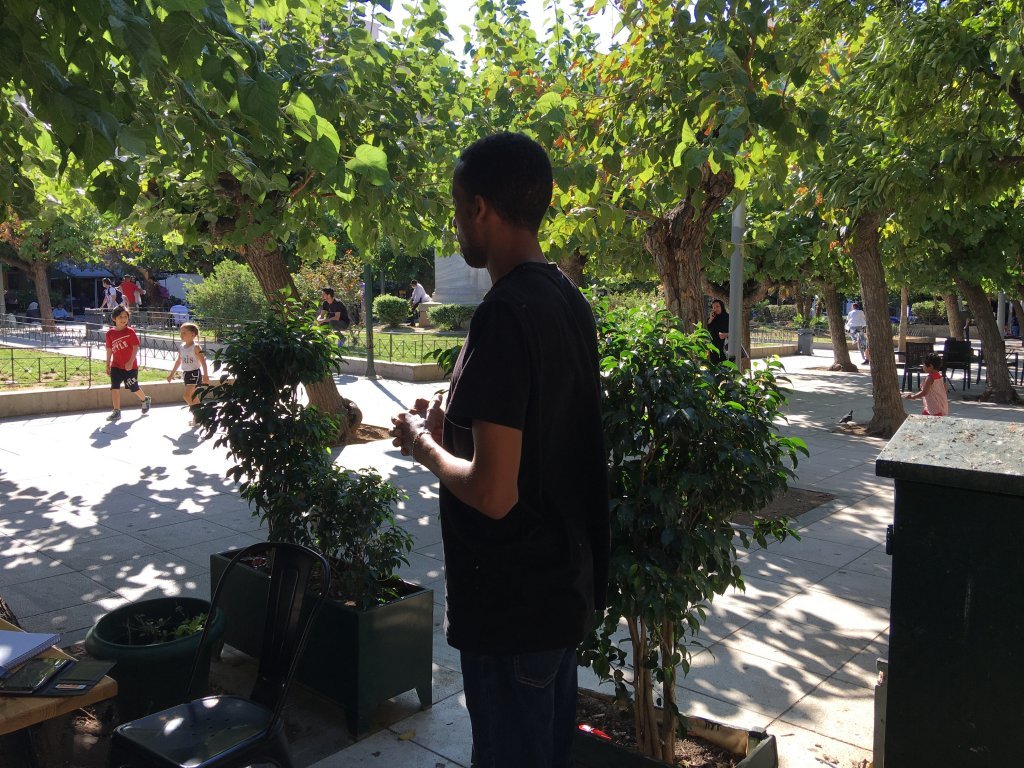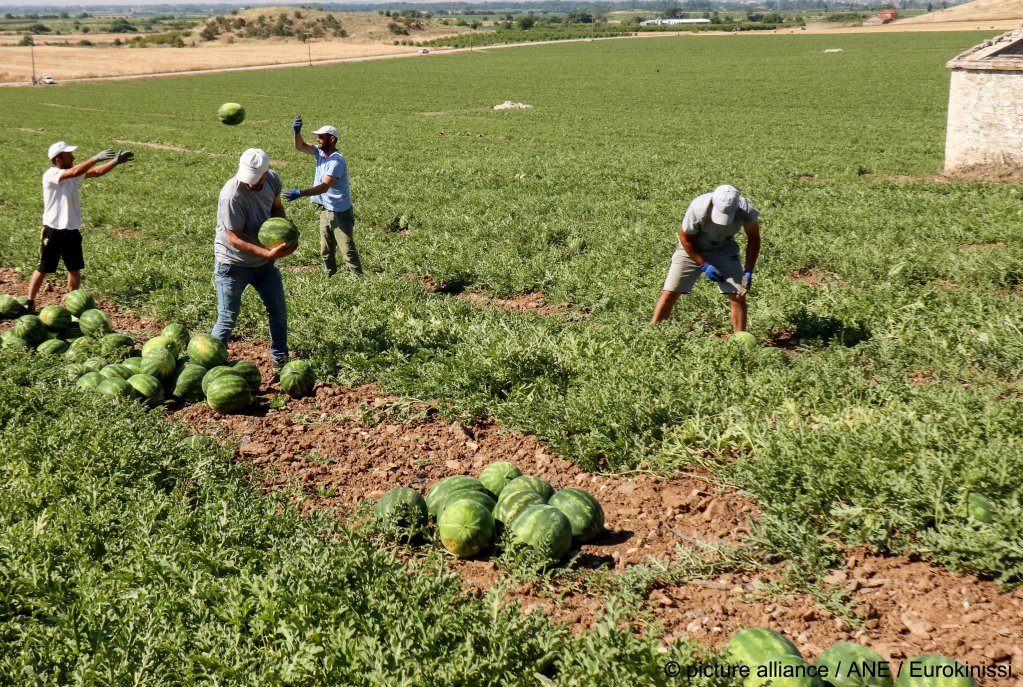Migration flows in Greece are largely being determined by the economic situation in the country. Financial difficulties once they obtain international protection, the lack of necessary support programs and homelessness are pushing many refugees to move on to other countries.
The current economic situation in Greece, along with the housing crisis in the country, has made it increasingly difficult for migrants to build a life there, even when they receive international protection.
Many migrants run into financial difficulties once their asylum claim is approved, and they no longer qualify for asylum seeker accommodation. Instead they are left to their own devices, forcing them to face a number of bureaucratic and financial hurdles in order to start their new life. In addition, the recent closure of basic support programs has left many people homeless, making integration increasingly difficult.
The economic situation also limits any available job opportunities for migrants in Greece. Many migrants attempt to prepare for this eventuality by looking for work early on in the asylum process, so that they can save money to cover their costs once they receive approval of their claim.
Rouddy Kimpioka, the founder of RAD Music International, an NGO supporting refugees and asylum seekers on Lesbos, explains that Greece is in a difficult financial situation. “Local people are struggling to find work and for refugees it’s really hard. You need to speak English and Greek, but if you don’t speak both you’re excluded from the system,” he says
Policies of deterrence
Other reasons migrants move on from Greece may also be the prevalence of certain communities in other countries, where they may have friends or relatives and can receive more community support, Kimpioka tells InfoMigrants.
The conditions in the camps may also be a factor, says Christos Nikolaidis, the country coordinator of the Athens-based NGO Lighthouse Relief, which tries to fill gaps in humanitarian support for people seeking refuge. The Greek government has chosen to stop several programs which help to integrate and support asylum seekers, including for people that are highly vulnerable, despite availability of EU funding.

The decision by the government to close certain camps and transfer migrants to more remote locations is arguably an attempt to deter migrants from coming to Greece. However, rising conflicts in North Africa and the Middle East make it unlikely for migration flows to abate any time soon.
If the government’s aim is to push migrants out of Greece, the increasingly difficult housing and economic situation may force some refugees to move on to countries which provide more opportunities or better conditions. “People are trying to leave Greece for Germany, especially Afghans,” says Kimpioka. He notes that many African people often go to France, where they are more likely to speak the language and “where there are at least opportunities for jobs in the black market.”
The employment dilemma
Many migrants try to find work before leaving asylum seeker accommodation, in order to avoid financial hardship and homelessness faced by many when leaving the camps.
Speaking to InfoMigrants, Kimpioka explains that the conditions set out by the camps provide very limited opportunities for asylum seekers to find work. When migrants are able to find seasonal work in the summer for example, they often run into problems when they try to return to the camp. “If you are registered in one of the camps and you are out for more than a week, you are not able to go back into the camp, this makes it very difficult to find a job,” he says.

Kimpioka notes that many migrants will not stay in Greece long term if they are unable to find work. “If they saved some money they will often leave with that money” and move on to another country where there may be more opportunities.
However, he explains that once they leave Greece “they have to apply for asylum all over again.” This can be risky, Kimpioka points out: it is not clear if they will receive international protection in the new country, as the procedure in each country is different.
On Lesbos, RAD Music International tries to provide migrants with more opportunities whether they choose to stay in Greece or not. “We teach German here, because they want to be ready when they go there so they can have a basis for communication,” says Kimpioka.
Exploitation of migrant workers
“You are allowed to work as an asylum seeker, after you get your social security number,” Nikolaidis explains. This can be an issue for asylum seekers to obtain due to bureaucratic delays.
Nikolaidis notes that one of the main issues in Greece is the lack of available legal work. “Jobs that provide you with proper contract, pay your insurance, your taxes and pension scheme are scarce, there are not that many opportunities to find proper employment.”
Kimpioka notes that black market work is more readily available, with many migrants being offered undocumented farm work. However, Nikolaidis points out that having a kind of parallel economy based on black market labor also puts migrants at high risk of exploitation.
In recent years the exploitation in agricultural sectors such as strawberry farming has been well documented in Greece.

picture alliance / ANE / Eurokinissi | Leonidas Tzekas
Despite many investigative reports about the conditions in the sector, this still happens today, notes Nikolaidis. Many farmers still rely on migrants to help with the harvest.
Legal pathways to employment
In September, the Greek government announced plans for a regularization program to allow unregistered migrants to work in certain sectors, including construction, which are currently experiencing a labor shortage.
These changes, which are expected to affect around 300,000 migrants who are either undocumented or whose residence permits have expired, “have been very good news for refugees,” notes Kimpioka.
However, even with more legal pathways to employment, Nikolaidis is concerned about the future conditions for migrants in Greece. He points out that even on the Greek minimum wage of €780 (around €670 net a month), it is very difficult to live in Athens due to the housing crisis. “It’s nearly impossible for you to make it even if you had proper employment,” he says.
With so many hurdles to survival in Greece, Kimpioka says many migrants are willing face the risks involved in traveling to a different EU country. “They don’t think about what could happen on their travels, they prepare to leave because they want a better life”.
Source : Infomigrants


